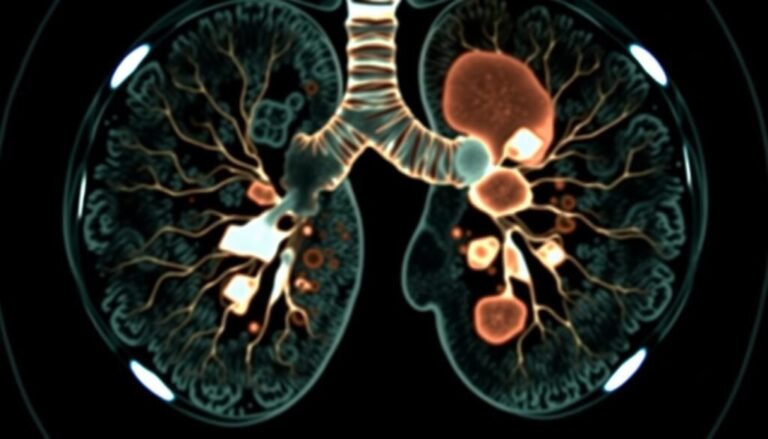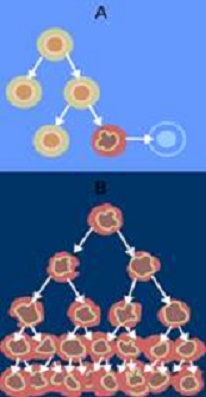Brain Tumor / Cancer
A brain tumor is a group of abnormal cells in or near the brain
Both malignant and benign brain tumors can damage adjacent brain tissue. Either directly, by damaging nearby healthy cells or indirectly, as a consequence of inflammation / swelling / crowding. Confined to the space inside the bony skull, there is no room for expansion for a growing tumor, which puts pressure on and displaces brain tissue. This may cause various symptoms and problems, some of which may be life-threatening. E.g. can block cerebrospinal fluid flowing through the brain, increasing intracranial pressure and enlarging ventricles (hydroencephalus)
- A benign brain tumor: grows slowly, has distinct boundaries, and rarely spreads to nearby brain areas.
- A malignant brain tumor (i.e. Brain cancer): grows quickly, has irregular boundaries, and usually spreads to nearby brain areas, but rarely to organs outside the brain or spine.
Tumor cells are analyzed under a microscope and graded according to:
- Cell muliplication rate;
- Extent of blood supply to cells;
- Amount of necrosis (dead cancer cells) in the middle of the tumor;
- If the cells are confined and how different they are to normal cells.
Primary or metastatic brain cancer?
- Primary brain tumors: originate in brain tissue; can be either malignant (brain cancer) or benign. Primary brain cancer does not usually metastasize to areas outside the brain or spine.
- Metastatic brain tumors: cancer cells in brain tumor have traveled from another location via the blood or lymph; nearly always malignant. Lung and breast cancers are the most common cancers that spread to the brain.

Causes of brain cancer
Possibly environmental or genetic

Symptoms of a brain tumor
Symptoms of a brain tumor include:
- Headaches;
- Nausea / vomiting;
- Seizures;
- Behavioral changes;
- Memory loss;
- Vision or hearing problems.

How to treat brain cancer
Any chosen treatment must not cause inflammation.
Not yet written


















